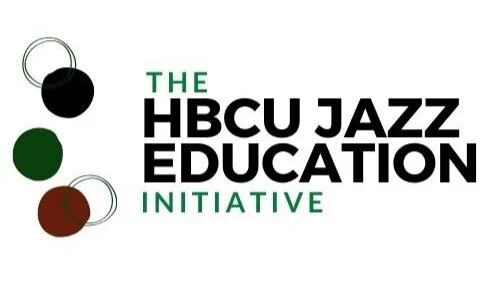The Introductory Letter
HBCU Colleagues:
I am writing this letter regarding what many of our colleagues in HBCU’s consider an urgent crisis. This crisis is the lack of Jazz Studies Programs and Curricula in HBCU Colleges and Universities throughout this nation. Recent events involving Covid -19, policing in this country and the Black Lives Matter movement, have inspired many of us to look inward historically, culturally and educationally.
In recent weeks, colleges and universities from the State of North Carolina had a Zoom meeting concerning Racism in Jazz Education. Ironically the same evening, there was a national meeting on Racism in Jazz Education which was also inclusive of gender issues. The National meeting included universities such as North Texas State, Cal-State, the University of Northern Colorado, Eastman, Indiana University, Michigan State, North Carolina Central University and many others.
In both sessions, there was a notable absence of HBCU universities participating in the discussion. It is my opinion and the opinion of others that HBCU colleges and universities are not considered being capable of having world class jazz studies in the curricula of their Departments and Schools of Music. Some of these misconceptions may be based on certain facts revealing that of the 107 HBCUs, there are only about 5 or 6 institutions that offer Jazz Studies degrees or concentrations. Based on the history of this music, I find this unbelievable.
A conversation should be held to examine the following:
Should Jazz Studies Programs exist in HBCUs?
What are the impediments and opposition addressing Jazz in Academia in HBCUs?
Jazz Education at PWI (Predominantly White Institutions) are plentiful with California alone having at least 27 universities offering Jazz Curricula and degrees.
Do HBCU universities want Jazz Studies programs on their campuses?
Can HBCUs justify an absence of Jazz Studies on their campuses, especially considering that Jazz has been one of the most influential musical forms of the 20th century?
Do HBCUs consider Jazz Studies worthy of serious study?
Have HBCUs bought into the stereotypes and myths that Jazz is inferior music when compared to “Classical Music”
How important is life experience in the field of Jazz, and can this experience ever be considered equivalent to a terminal degree in Jazz or music?
There are several issues to consider in addition to cultural and historical implications.
Economic impact: If we have few institutions offering jazz degrees, our graduates from HBCUs with jazz degrees will have less opportunities for employment. In the discussions above regarding Racism in Jazz, one important factor was raised; the under representation of African-Americans finding opportunities to teach in PWI universities.
Many programs in the State of North Carolina had either one or no African-Americans teaching in their Jazz Studies Programs. This is also the case on the national level at PWI and universities.
Some prevailing philosophies with Jazz in Academia stems from the same myths that were a part of the propaganda in the early 20th century. Jazz was inaccurately associated with so-called ills of society: drugs, prostitution, jazz musicians are incapable of explaining or documenting their craft, incorrect technique, devil’s music, etc. Louis Armstrong and many other early jazz pioneers would have welcomed the opportunity to perform in “upscaled” performance venues to earn a living if they were allowed to. It is my premise that we cannot let these false narratives result in our not exposing or students and communities to this art form, while other institutions in the United States and abroad are embracing and thriving in this art form.
In a 1964 MENC Conference in Philadelphia, Pennsylvania, Dr. Billy Taylor’s presentation was summarized as follows: (a) jazz is a melodic art, (b) jazz is a manner of playing which has evolved within the framework of a definite extant repertory, (c) the sixty-odd years of the development of jazz has clearly established a general awareness that it is the only true indigenous American musical idiom, and (d) the theoretical knowledge and technical dexterity necessary for the performance of jazz are of the highest order and should be utilized for the more comprehensive training of today’s young musicians (Barr, 1974).
As Dr. Taylor expressed, the study of Jazz is equivalent to the study of what one may deem the highest musical standards equivalent to all of the world’s great music. Ellington, Basie, Thad Jones, Monk, Fletcher Henderson, Armstrong and others are on just as valid as Bach, Beethoven, Stravinsky and many others.
Many musicians with Jazz backgrounds, (Quincy Jones, Oliver Nelson, J.J. Johnson, Herbie Hancock, etc. in addition to being great performers, have written for major television shows, movie scores, as well as major nationally and internationally renown “pop” artists. The performance, theoretical and compositional requirements in their study prepared them for the total musical experience. This is essentially the essence of Jazz Studies degrees and curricula.
So, the question remains, is the inclusion of Jazz Studies in HBCU Departments and Schools of Music in crisis. A few decades ago, Ebony magazine published an article concerning African-American Music forms, (Blues, Jazz, etc.). The premise of the article was,” Are we losing our African-American forms of music or are we giving it away.” Let’s have a discussion on this vital but disappearing genre from the African-American music tradition.
Ira T. Wiggins,
Professor of Jazz Studies at North Carolina Central University
